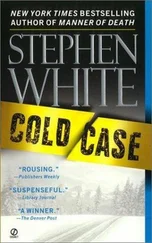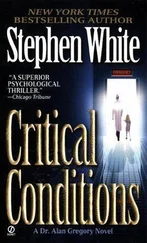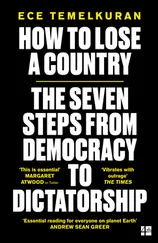I considered her argument before I said, "That's a luxurious position for you to have, Naomi."
"What do you mean?"
"I'm thinking of the Klebolds and the Harrises. Over the months before that day at the high school, they probably made the same kinds of judgments about their children. Saw two here, and saw two there, but never allowed themselves to believe that the sum added up to four."
She sputtered as though she couldn't wait to respond to my words. "And, you know what? A thousand other parents-mothers like me-have done the exact same thing. We've seen things and never told the police. And our children never ended up doing a thing wrong. Not a thing. None of them. Two and two never added up. Ever. I thought you would understand."
"Understand what?"
"What it's like for parents. Aren't you a parent? Can you believe that your child is evil? Do you know how hard it is to cross that line?"
I looked down at Grace, asleep in my arms. No, I couldn't believe that my child was evil. Would ever be evil.
Not a chance.
"Not necessarily evil," I said, "but what about flawed? Troubled?" I added a bonus rationalization for Naomi's benefit. "Or what if the child is influenced by the wrong people? That happens."
"Killing someone isn't a flaw, Doctor. It's evil. And evil isn't in the air, you don't just catch it like a virus. It comes from somewhere, some injury deep inside." She paused. "And, although he's certainly been hurt badly by all that's happened, I don't believe my child has ever been to that place. I'd know it if… he had-I'm his mother."
I cushioned my voice, foaming the runway with my next words, trying to give her a soft place to land. "But you're not entirely sure, are you, Naomi? That's why we're talking."
She didn't want to come down gently. She said, "Maybe I shouldn't have called you after all. I'll see you on Friday-if I don't reconsider this whole thing."
Hurriedly, I interjected, "The reason you called tonight? Why is it important that I not misinterpret what you said today during our session? It's my impression that you're angry that I'm still able to see both sides of the coin."
"I don't want you to do anything stupid."
"I don't understand."
"I didn't want you to run off and tell anyone what I said. Send the bomb squad to my house or something. That's all."
"I couldn't reveal our conversation to anyone, Naomi. Not without your permission."
"I bet you could find a way around that."
"Are we talking about trust now?"
"I have no damn idea what we're talking about." She hung up as I was trying to figure out a discreet way to inquire about the other nine or so wouldn't-it-be-cool targets that Ramp and Paul had mentioned.
As the line went dead in my ear, I said, "Is my wife on that list, Naomi?"
I went to bed knowing that I needed help.And I woke up the next morning knowing that I needed help.
Although I would've loved to have discussed the whole Naomi Bigg situation with Lauren, and would have welcomed her reasoned counsel, confidentiality concerns and peculiar circumstances made that impossible.
The peculiar circumstance, of course, was the possibility that Lauren was one of the potential targets of Paul and Ramp's wouldn't-it-be-cool games. And the very real possibility that the game was really only a mind game.
The way I looked at it was that my position was simple. I couldn't risk saying anything and I couldn't risk not saying anything.
W hat I'd decidedI needed was what psychotherapists call supervision. In another profession, I suppose the same thing might be called consultation. Basically, supervision means that one psychotherapist invites another, hopefully more objective, usually more experienced professional to review and comment upon his or her work.
On those occasions when I decided I needed some objectivity with my practice, I relied on one of three different people, depending on the specifics of the case. When the issues in the case involved ethics, as this one did, my first choice was almost invariably Raymond Farley, Ph.D. Raymond's capacity to detect prevarication and rationalization was finely honed, and I knew I could count on him to help show me which side of the trees the moss was growing on in the forest where I was lost.
I called his home at seven-fifteen on Thursday morning. His youngest daughter was a junior in high school, so I figured the Farley household would already be humming along.
Raymond's wife answered.
"Cyn? It's Alan Gregory, how are you?"
"Alan, hello. How am I? Not quite as awake as you are. You want my sugar, right? I'm trying to get my daughter out the door. Let me find him. Raymond? It's for you."
A moment later I heard Raymond's baritone. "Alan. Long time. How's your new baby?"
"Grace is great, Raymond. How're your kids?"
He answered me at great length and with great patience. There was little hurry in the blood that coursed through Raymond Farley's veins. No one ever, ever took more care while finishing a story, and no one ever finished a meal after Raymond Farley finished his. "You didn't call to get an update on my kids, though, did you? What can I do for you?"
"I've got a case I would love to run by you. It's urgent, unfortunately. I see this woman again tomorrow evening and I should probably talk to you before her next appointment."
"Outpatient?"
"Yes."
"What's the urgency?"
"Columbine issues, Raymond."
"It's that time of year, I guess. What are we talking, grief? Anniversary reaction? Post-traumatic stress?"
"I'm not referring to the last Columbine, Raymond. I'm referring to concerns about the next Columbine."
"Oh," he said. "Oh."
"Can you squeeze me in?"
"I'm going to be at CU in Boulder doing a seminar on suicidal tendencies from one to three today. Meet me outside of Wardenburg-the student health center-at three. If the weather holds we'll find someplace pretty to sit, and we'll talk."
I rescheduled mytwo forty-five patient, picked up sandwiches and drinks at Alfalfa's on Arapahoe, and started to wait for Ray on the University of Colorado campus.
The campus is over a hundred years old and the founders had had their pick of prime foothills real estate for the location of the university. They'd chosen wisely. The CU campus is far enough from the vaulting mountains to maximize views, close enough to ensure that the Rockies would never cease to be a dominating presence. The flagstone buildings and red tile roofs of the major buildings on the University of Colorado campus are as distinctive an architectural feature as can be found on any campus in the western United States. The feeling is vaguely Italian, and that afternoon, the brilliance of the April sunshine added to the Mediterranean ambience.
Raymond Farley walked out the front door of Wardenburg a few minutes after three. I held up the bag I was carrying. "Grilled chicken on sourdough. I seem to recall you have a fondness. And Dr Pepper? Did I get that right?"
He rewarded me with a welcome embrace and his wide grin. His rich brown skin glowed in the springtime sun. "You recalled correctly, on both counts. I'm afraid I'm responsible for the demise of way too much fowl. Cynthia says that she thinks I'll have to answer to Saint Peter about that."
"If that's all that Saint Peter has to question you about, Raymond, you'll have a fine day at the pearly gates."
We walked in the direction of the planetarium and found a bench below a small mountain ash that was just beginning to leaf out. Raymond unwrapped his sandwich and popped the top on his Dr Pepper. "You talk while I eat," he said.
"The patient I'm concerned about is a fiftyish female whom I saw for the first time this past Monday. Tomorrow's appointment will be our fourth session this week. That alone should tell you something."
Читать дальше












